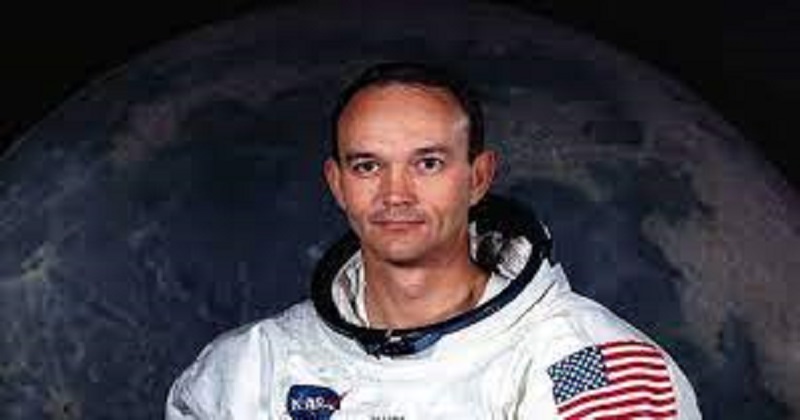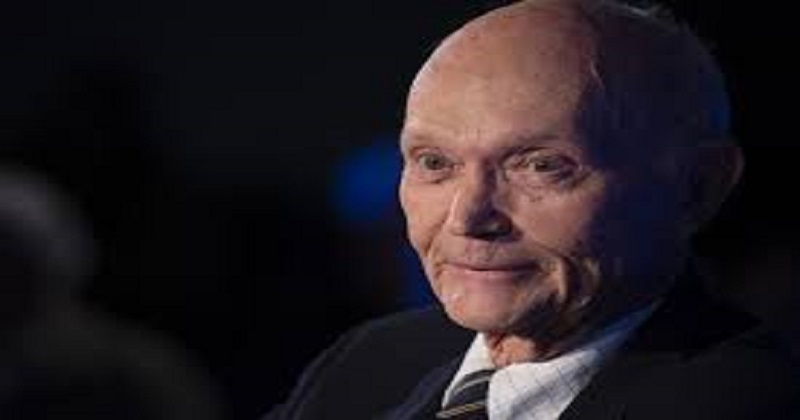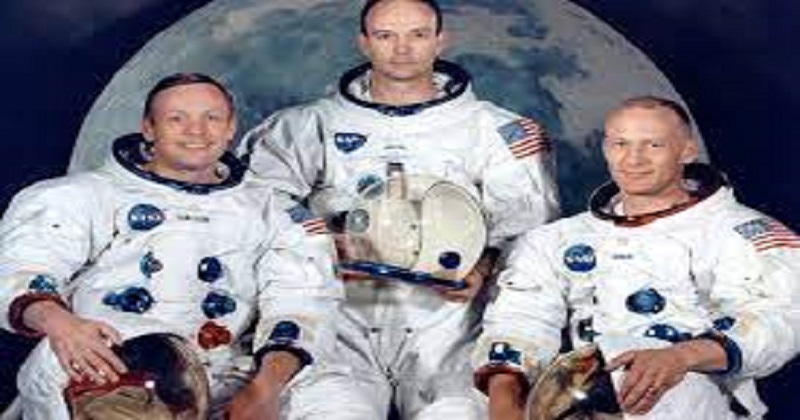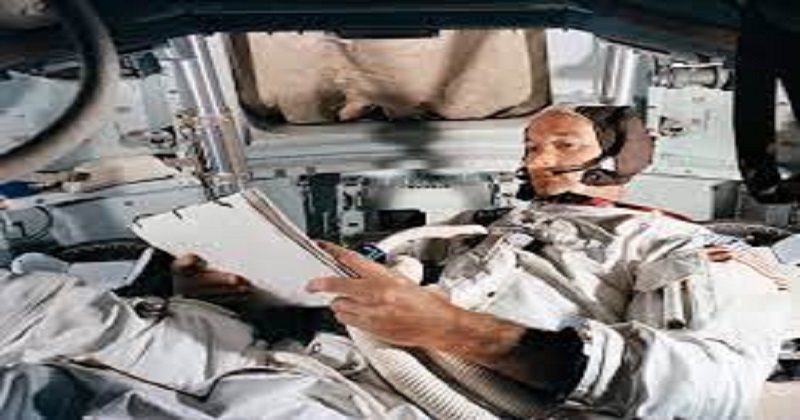
Michael Collins, the third member of the First Moon Mission, Apollo 11, passed away at the age of 90 in Florida. The American astronaut was suffering from cancer.

Michael Collins was the pilot of the Apollo 11 command module during the First Moon Mission. He stayed behind on July 20, 1969, in the Command Module Columbia while his fellow astronauts Neil Armstrong and Buzz Aldrin made history by walking on the lunar surface. Collins is often described as the “forgotten” third astronaut on the eight-day historic mission.

Though his contributions to the mission were equally essential he did not become popular like Neil Armstrong and Buzz Aldrin. He travelled nearly 238,000 miles to the moon and came within 69 miles and he stayed alone in the Command Module Columbia for 21 hours till Neil Armstrong and Buzz Aldrin returned from the lunar mission. All the while he was circling roughly 69 miles above the lunar surface. He lost contact with mission control in Houston, Texas each time the spacecraft passed the dark side of the moon. Because of this long solo flight, he was sometimes called “the loneliest man in history.”
“Hey, Houston, I’ve got the world in my window,” he told mission control during his solo flight.

His 21 hours of solitude were entered in the mission log as “Not since Adam has any human known such solitude as Mike Collins.”
During the 50th anniversary event in 2019, Collins said, “Good old Command Module Columbia had every facility that I needed, and it was plenty big and I really enjoyed my time by myself instead of being terribly lonely.”
His strongest memory from Apollo 11 mission is not of the moon, but of the earth. To him, the earth looked fragile and tiny in its black velvet background.
“Out there was this little pea about the size of your thumbnail at arm’s length: blue, white, very shiny, you get the blue of the oceans, white of the clouds, streaks of rust we call continents, such a beautiful gorgeous tiny thing, nestled into this black velvet of the rest of the universe,” he said.
US President Joe Biden said his prayers were with the Collins family. Excerpts from the President’s statement read, “He may not have received equal glory, but he was an equal partner, reminding our nation about the importance of collaboration in service of great goals. From his vantage point high above the Earth, he reminded us of the fragility of our own planet, and called on us to care for it like the treasure it is.”
Collin’s colleague Buzz Aldrin took to Twitter to pay tribute to him.
Dear Mike,
Wherever you have been or will be, you will always have the Fire to Carry us deftly to new heights and to the future. We will miss you. May you Rest In Peace. #Apollo11 pic.twitter.com/q4sJjFdvf8— Dr. Buzz Aldrin (@TheRealBuzz) April 28, 2021
NASA paid its tribute to Collins by sharing an unseen and beautiful photo of the moon with Earth in the background which was clicked by Michael Collins.
“I’ve got the world in my window.”
Michael Collins snapped this photo of the lunar module returning to the command module after landing on the Moon. With the Earth in the background, all of humanity is in this photograph, save Collins himself. pic.twitter.com/5StJrvzB0T
— NASA Moon (@NASAMoon) April 28, 2021
Michael Collins was born in Rome, Italy, on October 31, 1930. His Appolo mission mates Neil Armstrong and Buzz Aldrin were also born in the same year. His parents were Virginia Collins and US Army Maj. Gen. James L. Collins. Like his father, he also attended the US Military Academy at West Point, New York, and graduated in 1952. Collins started his career as an Air Force test pilot. He was selected by NASA for its astronaut programme in 1963.
Collin’s first spaceflight was in July 1966 as a pilot on Gemini X, one of the two-man missions made in preparation for flights to the moon. The mission carried out a successful docking with a separate target vehicle. Collin’s made a then record-breaking two spacewalks in this mission. During the spacewalk, he lost a camera, which is often cited as one of the items of space junk orbiting Earth. His second, and final, spaceflight was the historic Apollo 11.
After a short stint in government as Assistant Secretary of State for Public Affairs, Collins became the first Director of the National Air and Space Museum in Washington. He retired in 1978. He wrote a number of space-related books including his autobiography ‘Carrying the Fire.’

Post Your Comments